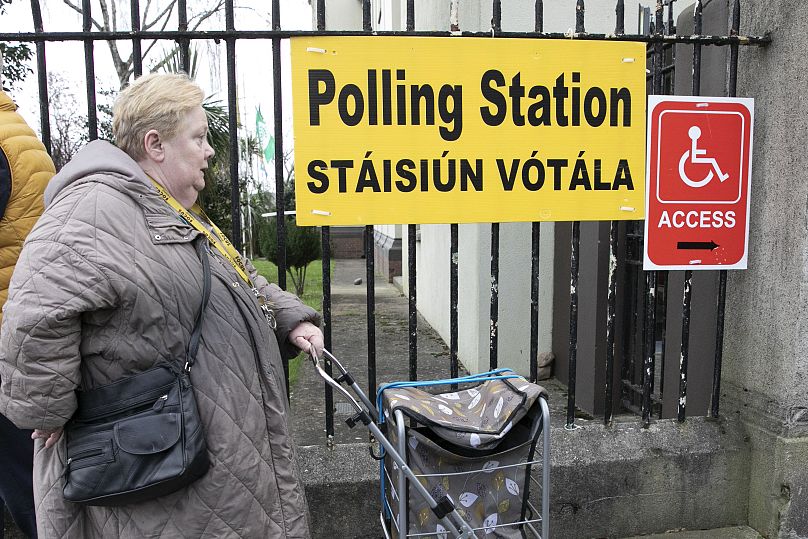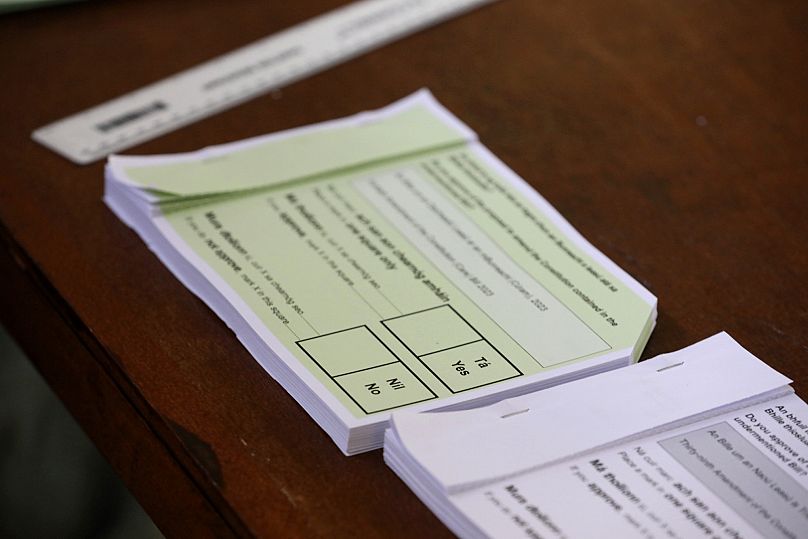Celebrating International Women's Day takes on a unique significance in Ireland this year, as the country engages in a crucial vote on changing its eight-decade-year-old constitutional language on the role of women.
Ireland is set to consider two referendums today: one about women’s role in the home and the other seeking to redefine the contours of family in modern Irish society.
 ADVERTISEMENT
ADVERTISEMENT
 ADVERTISEMENT
ADVERTISEMENT
These referendums have generated a lot of questioning and a desire to remove the gendered language of the ‘women in the home’ reference.
In the wake of landmark decisions such as the 1995 vote to abolish the divorce ban and subsequent referendums on same-sex marriage (2015) and abortion (2018), the Irish public is being asked to vote YES or NO over the wording of the new article and the impact it will have on Irish women’s rights.
What does the current care amendment say about women?
The existing constitution, birthed in 1937 when the influence of the Catholic Church was large, acknowledges a woman's "life within the home" as a cornerstone of support necessary for the "common good."
Article 41.2 of the Irish constitution, filed with gendered nuances, not only recognizes this contribution but also pledges to shield mothers from economic pressures that might divert them from their domestic duties.
“The State recognises that by her life within the home, woman gives to the State a support without which the common good cannot be achieved”.
It adds: “The State shall, therefore, endeavour to ensure that mothers shall not be obliged by economic necessity to engage in labour to the neglect of their duties in the home”.
Now, voters are being asked whether the language, which many have argued to be sexist and outdated, used should be deleted.
However, there have also been a lot of debates centered around erasing the word “woman” from the Constitution and whether the change would work against women who only work in the home or remove constitutional protection for mothers.
Meanwhile, advocates for change argue that the new wording will bring the Irish constitution up to date with modern society.
In the constitutional frameworks that shaped the identity of other European nations, the language used to describe the role of women stands as a reflection of societal values.
In Germany, the Basic Law stands as an example of progress in gender equality. Enshrined in Article 3, the principle of equal treatment prohibits discrimination based on gender, recognising the equal rights of men and women explicitly.
France, with its commitment to "liberté, égalité, fraternité," emphasises the nation's commitment to treating all citizens equally. The concept of laïcité, or secularism, further influences discussions around women's rights, as the country became the world’s first country to enshrine abortion rights in the constitution earlier this week.
What does the new Irish referendum propose?
The new referendum proposes replacing this with Article 42B, which recognises the care that family members provide to one another.
It says: “The State recognises that the provision of care, by members of a family to one another by reason of the bonds that exist among them, gives to Society a support without which the common good cannot be achieved, and shall strive to support such provision.”
The outcome of today's vote will serve as a key moment in determining Ireland's approach to navigating key social issues moving into the future.












